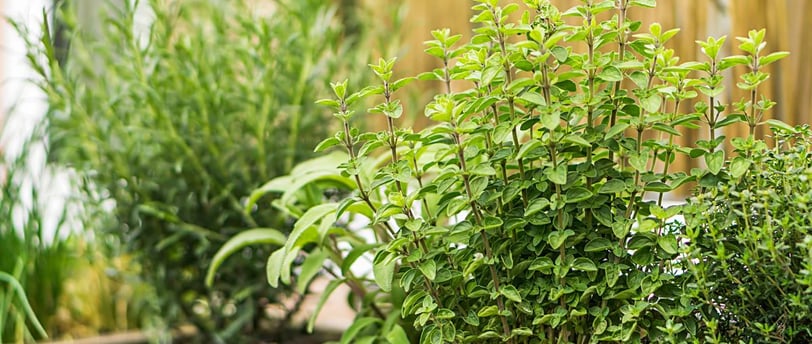Top 5 Perennial Herbs You Can Grow Once and Harvest for Years
Discover the top 5 perennial herbs you can plant once and harvest for years. Perfect for low-maintenance, sustainable herb gardens indoors or outdoors.
GROW & CARE


Most herbs need to be replanted each season, but perennial herbs offer a long-term solution. These hardy plants come back year after year, saving you time, money, and effort. Whether you’re growing in the ground or in pots, these five herbs are some of the best investments for a sustainable garden.
Let’s dive into the top perennial herbs that will keep your garden green and your meals flavorful all year round.
Why Choose Perennial Herbs?
Long-term harvests – Plant once, enjoy for years
Low maintenance – Many tolerate drought and poor soil
Sustainable – Reduce waste and cost from replanting annually
Space-efficient – Great for raised beds or container gardening
1. Thyme
Thyme is a tough, compact herb that thrives in both garden beds and containers. It’s drought-tolerant, and once established, it asks for very little.
Light: Full sun
Soil: Well-drained, slightly sandy
Hardiness zones: 5–9
Harvest tip: Snip the tips regularly to keep it bushy
Bonus: Thyme also repels some pests, making it a great companion plant.
2. Oregano
A Mediterranean classic, oregano is flavorful, fast-growing, and practically thrives on neglect. It spreads quickly, so give it room or grow it in containers.
Light: Full sun
Soil: Dry, well-draining
Hardiness zones: 5–10
Harvest tip: Harvest just before it flowers for the strongest flavor
Greek oregano is the most potent variety for cooking.
3. Chives
Chives are a gardener's favorite: easy to grow, quick to multiply, and great in everything from eggs to soups.
Light: Full sun to partial shade
Soil: Rich, moist but well-drained
Hardiness zones: 3–9
Harvest tip: Cut leaves down to about 1 inch above the soil to promote regrowth
Their edible purple flowers attract pollinators too!
4. Mint
Mint is technically perennial, but it’s so aggressive it should always be planted in containers. Otherwise, it can take over your entire garden.
Light: Partial shade to full sun
Soil: Moist, fertile
Hardiness zones: 3–11
Harvest tip: Regularly trim to keep it from flowering and getting leggy
Spearmint and peppermint are the most commonly used kitchen varieties.
5. Lavender
Often considered more ornamental, lavender is a powerful herb for culinary use, herbal teas, and natural pest repellent.
Light: Full sun
Soil: Dry, well-draining, slightly alkaline
Hardiness zones: 5–9
Harvest tip: Cut flower stalks just as buds open for the best aroma
Drought-tolerant and highly fragrant—great for pollinator gardens.
Tips for Growing Perennial Herbs Successfully
Add mulch to retain moisture and reduce weeds
Prune annually to keep plants productive and neat
Divide roots every 2–3 years to prevent overcrowding (especially for chives and mint)
Use compost annually to refresh the soil
Grow in pots if you have limited space or need control over aggressive spreaders
